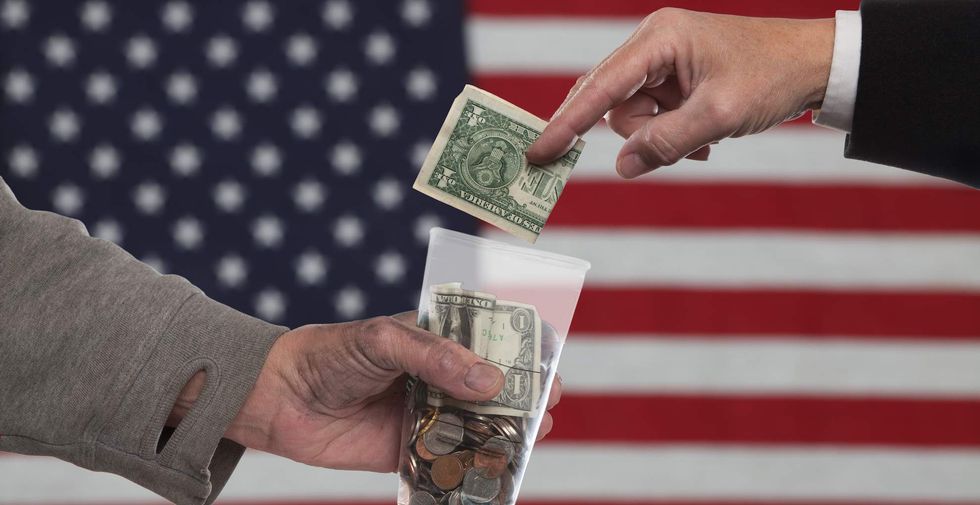
A new study from Harvard University revealed that those who are exposed to more income inequality are actually more likely to take a conservative approach to increased taxes. (Getty Images)

A new Harvard University study revealed that people who are exposed to income inequality are less likely to want increased taxes — the opposite result of what researchers were anticipating.
“I was curious about whether there may be a treatment effect of living in a city,” Melissa Sands, the Harvard Ph.D. student who conducted the study, told the Harvard Gazette. “It’s the great equalizer in a way. People from all walks of life are together on the train. I thought perhaps part of why cities tend to be left-leaning is because people have those experiences, they see people from different socio-economic backgrounds, and that might make them more empathetic.”
But the study showed a different result.
Sands tested her theory by hiring actors to pose as affluent or poor people walking through the city. Researchers would then ask unwitting passersby who saw the actors to sign a petition in support of increased taxes.
According to the data, which was published Wednesday, only 6 percent of people would sign the petition after passing a poor-looking white actor on the street. By comparison, 14 percent signed the same petition when they passed an affluent-looking white actor.
The petitions were held by students who were placed just feet away from the actors.
Nothing changed when the same test was conducted with poor- and affluent-looking black actors. In addition, support for a different cause, eliminating plastic bags, remained constant regardless of the socio-economic status of the actors involved.
Sands’ study was one of the first to utilize income inequality in a real-world setting to determine people’s openness to higher taxes.
“One way this study departs from what’s been done previously is that this is the first study to experimentally manipulate inequality in the real world,” Sands said. “Most prior studies used a survey approach, in which they would show participants a chart or provide them with some information, and then ask questions.
“This is a big departure from that,” she continued, “because we’re creating what I call ‘microsettings’ of inequality.”
Sands sought to explain why the results were different from what she anticipated. She said the fact that people only received “momentary exposure” to the poor- and affluent-looking actors influenced their decision-making.
“In this study, people are not stopping and talking to the person, they’re not spending the day volunteering in a homeless shelter or seeing how the other half lives,” the doctoral student said. “It’s a momentary exposure … so I think the effect I’m finding here is something that just occurs in the moment, and with repeated exposure we might actually see the effect reverse.”
This research was conducted in Boston neighborhoods like Brookline, Beacon Hill, and Back Bay. Sands said she plans to conduct more studies like this one in different places across the U.S. and with varying levels of exposure to inequality.